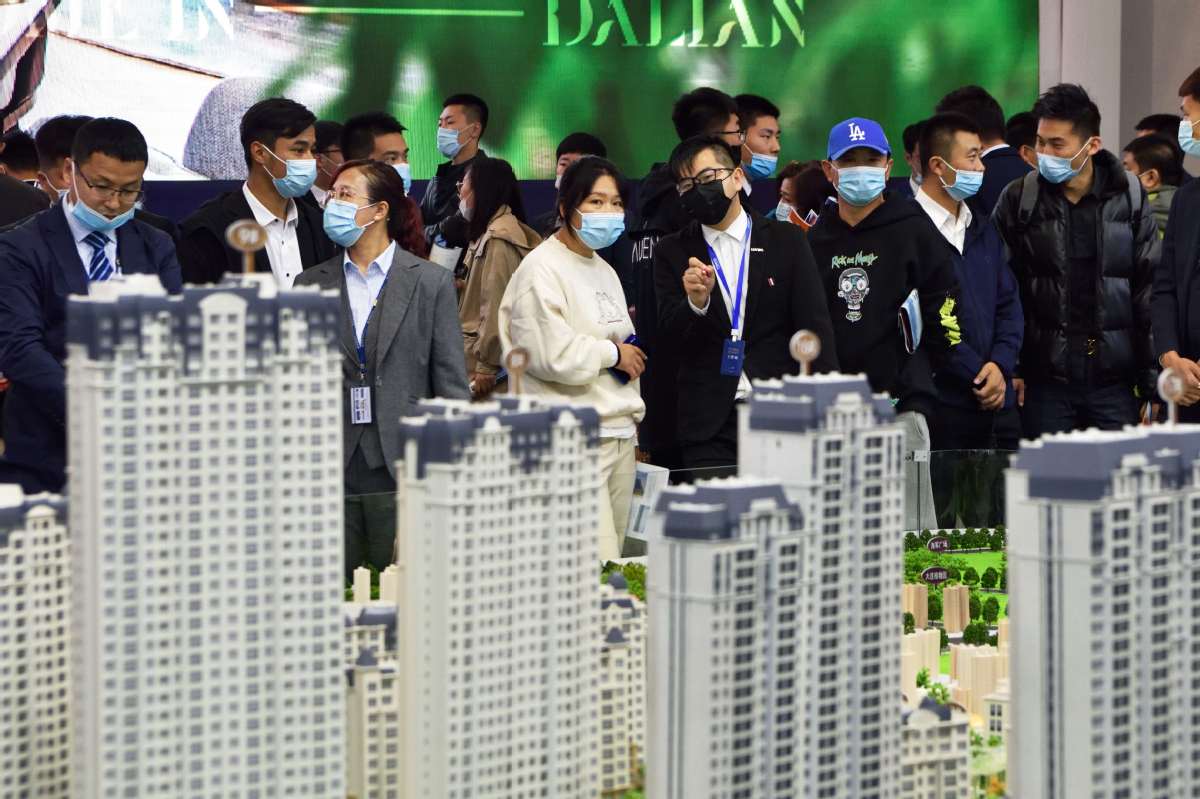Rental housing keyword for cities in annual two sessions
By Wang Ying in Shanghai | China Daily | Updated: 2021-02-02 08:24

Deputies mull a raft of new measures, policies to guarantee market supply
At a time when major Chinese cities are rolling out new measures to keep the real estate market in check, efforts should be made in increasing supplies of rental housing, deputies at some regional annual two sessions said.
Local two sessions, or the annual meetings of local lawmakers and political advisors, are being held in Shanghai, Shenzhen and Guangzhou of Guangdong province, and Hangzhou of Zhejiang province.
Representatives agreed to better regulate local home markets and uphold the principle of "housing is for living in, not speculation".
In addition, expansion of the leasing market and renovation of aged and existing residential communities are now high on the agenda of urban development.
Typically, at local two sessions, lawmakers and political advisors discuss local economic growth and social development of the last year and make plans for the year ahead.
"It is a convention that two sessions will set the tone for the development guideline of the coming year, and estimates or projections about the real estate sector, and draft policy proposals thereof would be discussed accordingly," said Xu Xiaole, chief market analyst with the Beike Research Institute.
During Shanghai's two sessions, the municipal government said it will release 8,000 units for public rental housing this year.
According to Shanghai Mayor Gong Zheng, the city will accelerate its rental housing development and ensure 53,000 units will be in supply for leasing this year.
Shanghai is among the first batch of cities that set aside plots particularly for rental housing. During the past five years, or the 13th Five-Year Plan period (2016-20), Shanghai built more than 700,000 units for rental housing.
"As at the end of 2020, Shanghai has launched 152 plots for the construction of more than 10 million square meters of gross floor area living space, which would inject at least 220,000 units of new apartments for leasing," said Feng Ganghua, an official with the Shanghai Municipal Housing Administration.
Likewise, Beijing is currently drafting specific regulations for the rental housing market in order to effectively protect tenants' rights.
According to an online news report in ThePaper.cn, city-level governments in Guangdong province have plans to regulate and develop rental housing by exploiting idle land and increasing land supply for rental housing development.
The Securities Daily reported that Shanxi province is on its way to allocating 100,000 units of rental housing and renovating 8,526 units of homes as part of a shantytown transformation program.
A series of new gestures announced at local two sessions this year are sending strong signals that rental housing will be one of the key tasks for local governments, said Yan Yuejin, director of Shanghai-based E-house China Research and Development Institution.
It is expected that local governments will consistently support rental housing development by increasing supplies, improving regulations as well as announcing favorable policies to encourage enterprises that explore the leasing home business, Yan said.
According to a report from the Shenzhen-based real estate services provider WorldUnion, more than 11 cities allocated 142 pieces of land for rental housing in 2020 alone, which could be developed into about 3.81 million sq m of rental housing in the future.
The Central Economic Work Conference in December made it clear that rental housing will become one of the key focus areas for solving living problems in big Chinese cities, said Hui Jianqiang, head of research with Beijing Zhongfang-Yanxie Technology Service Ltd.
Industry experts said the central leadership has not only indicated the direction for real estate development but subsidized certain plans with practical measures. These include more supportive policies for rental housing land supply, specific planning on rental housing development, exploitation of rental housing land usage, and encouragement for both State-owned and private enterprises to take part in rental housing development.
The sufficient supply of rental housing would be ideal to meet people's varied living demand. Although home prices in certain top-tier Chinese cities are tending to soar, fresh university graduates and those new to a city may yet be capable of affording home purchases in specific areas, said Hui.
























